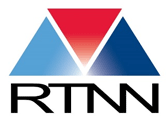The Chapel Hill Analytical and Nanofabrication Laboratory (CHANL), an RTNN user facility, is now seeking exceptional candidates for a Fabrication Research Scientist to join our team. Details and web links are below.
Research Scientist (Fabrication): https://unc.peopleadmin.com/postings/88708
CHANL is a shared instrumentation laboratory open to researchers at the University of North Carolina at Chapel Hill, other institutions, government labs, and private industry. The Fabrication Scientist will assist in executing projects for off-campus users, which may involve use of multiple facilities, including CHANL and similar facilities such as the Shared Materials Instrumentation Facility (SMIF) at Duke University and the Analytical Instrumentation Facility (AIF) and NCState Nanofabrication Facility (NNF) at North Carolina State University. Responsibilities will also include training new users to use equipment in CHANL and helping to maintain CHANL equipment. The Fabrication Scientist will also participate in and help coordinate educational workshops and outreach events that promote CHANL’s mission.
Applicants should have experience working in a cleanroom environment with vacuum systems and/or micro/nano fabrication equipment/processes, including deposition systems (PVD, CVD, ALD), etching (wet and dry), lithography (e-beam and photo). An aptitude for troubleshooting lab instruments. Ability to identify potential hazards in the laboratory and undertake safe work practices. Willingness to take on a wide variety of roles and able to work independently or with a diverse group of people. Excellent organizational and problem solving skills. Excellent written and verbal communication skills. Extremely detailed oriented and self-motivated.



